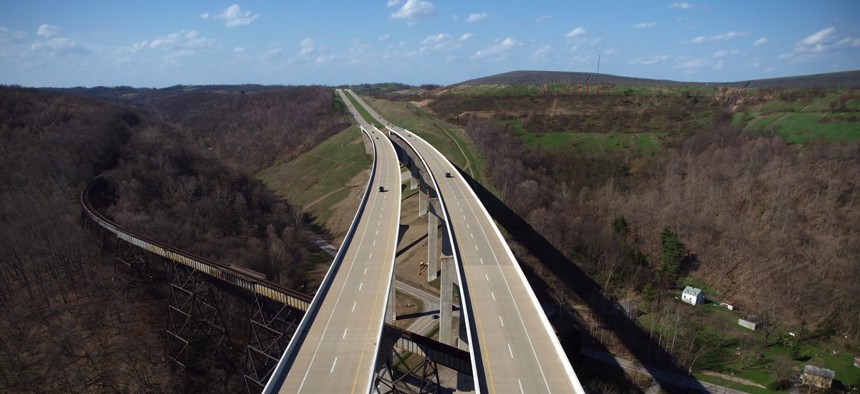This Rural Priority Won Big in the Federal Spending Bill

Some infrastructure funding was included in the final legislation signed by President Trump last week.
WASHINGTON — The spending bill signed by President Trump last week to avert another government shutdown includes an additional $475 million for bridge repairs compared to 2018, the “biggest identifiable win for rural counties,” according to one policy expert.
Bridges are one of the National Association of Counties' top priorities for 2019, said Jessica Jennings, associate legislative director for transportation and infrastructure for the organization.
The American Society of Civil Engineers, which gave the U.S. a D+ on its last infrastructure report card, estimates the nation’s bridge maintenance backlog at $123 billion—with 56,007 bridges, or 9.1 percent, structurally deficient as of 2016.
“I have no doubt that this does not address the backlog,” Jennings said. “I’m sure we need more funding, but with the state of the bridges and roads as it is … an increase for the bridge program is definitely a big win for us.”
The spending bill also included $293 million in funding for Port Infrastructure Development Program grants. The dedicated infrastructure funding will go toward everything from alternative fueling to freight intelligent transportation systems at U.S. coastal ports.
While the Federal Aviation Administration lost money overall, the omnibus bill also approved the transfer of $500 million in general fund money for the Airport Improvement Program. Another $20 million went to the Essential Air Service program for smaller, community airports.
Counties oversee 33 percent of all publicly owned airports, Jennings said.
“If you got rid of the airport, you would see such a detrimental impact [in the community],” she added.
The federal spending legislation signed by the president will keep several agencies key to state and local governments funded through September. Those departments included Transportation, Housing and Urban Development, Interior, Agriculture, Homeland Security and Justice, and the Environmental Protection Agency, as well as many other agencies. Some other departments were funded last year in other appropriations bills.
One other funding increase beneficial to counties was a slight uptick in Consolidated Rail Infrastructure and Safety Improvement grants for improving old rail lines, Jennings said.
The federal Highway Trust Fund remained about the same, Jennings said, but NACo’s only concern there is solvency, which requires Congress to move on a higher gas tax.
“We’ll take any transfers from the general fund that they’ll give us,” she added.
The biggest decrease affecting counties was $600 million less for Better Utilizing Investments to Leverage Development, or BUILD, grants from $1.5 billion in 2018 to $900 million.
That might seem concerning, but the previous fiscal year’s omnibus was “one of the biggest funding increases in recent years,” Jennings said.
“Within the larger context, I don’t know if there’s cause for alarm,” Jennings said.
Still, 70 percent of last year’s BUILD grants went to rural communities for infrastructure projects.
Otherwise, the bill was a lot like the previous fiscal year’s, Jennings said.
As a condition of signing the funding bill—which allocated $1.4 billion for physical border barriers, instead of the $5.7 billion Trump sought for his long-promised border wall—the president declared a national emergency. Now Trump is angling for $6 billion for the wall that could come, in part, from military construction funding, assuming the emergency declaration withstands lawsuits, including one this week from 16 states.
Whether the emergency declaration undercuts any recent omnibus spending gains remains to be seen.
“I think we’re probably way too early in the process to tell,” Jennings said. “I personally haven’t heard any concerns like that; obviously, we would be concerned if something like that were to happen.”
Dave Nyczepir is a News Editor at Route Fifty and is based in Washington, D.C.
NEXT STORY: Conflict-of-interest charges force pause in JEDI protest






